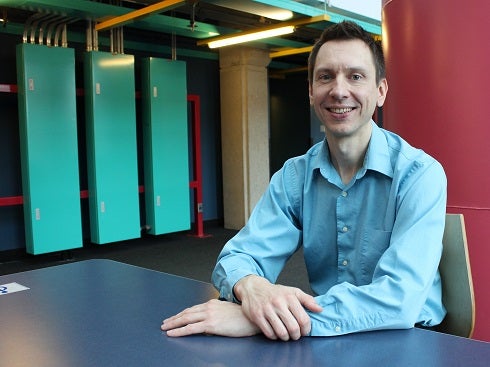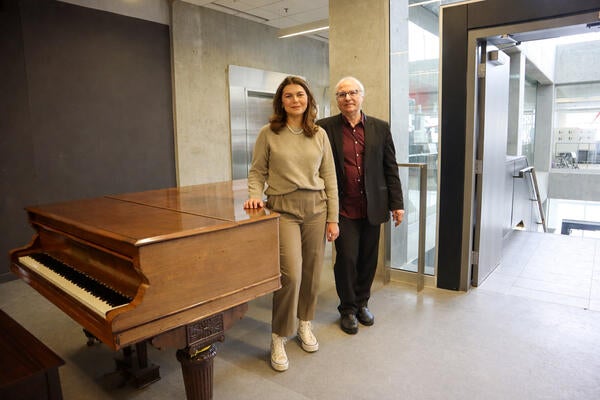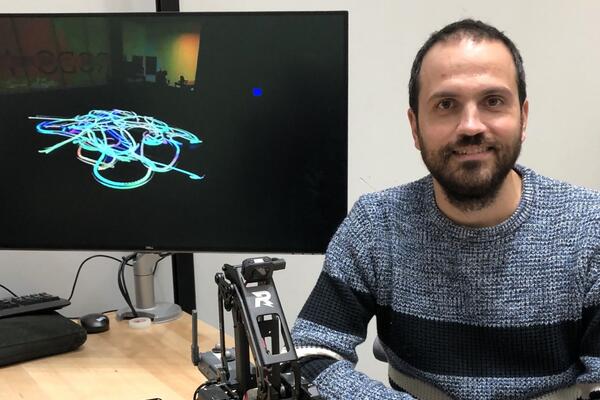
Stressing societal service is key to attracting female engineers
More young women are likely to go into engineering if it is promoted as a profession for well-rounded people with a desire to serve society

More young women are likely to go into engineering if it is promoted as a profession for well-rounded people with a desire to serve society
By Brian Caldwell Faculty of EngineeringMore young women are likely to go into engineering if it is promoted as a profession for well-rounded people with a desire to serve society, researchers at Waterloo Engineering have found.

The results suggest that efforts to close the field’s gender gap should stress key reasons for women to pursue engineering in addition to the current approach of instilling confidence in their technical and academic abilities to succeed.
“The message to women isn’t just that they can do it,” says Lukasz Golab, an engineering professor who led the research. “The message is also that women should want to do it because engineering is an excellent fit for their values, priorities and approaches.”
The study used artificial intelligence (AI) software to analyze more than 30,000 applications to undergraduate engineering programs at the University of Waterloo between 2013 and 2016.
Sophisticated text-mining techniques revealed that female applicants highlighted a broad range of strengths and experiences, such as volunteer roles and artistic pursuits, while their male counterparts stressed their technical qualifications.
Young women were also much more likely than young men to mention contributing to society and making a difference in the world around them as their reasons for seeking an engineering education.
“The implications are important,” says Golab, who collaborated on the study with graduate students Shivangi Chopra, Hannah Gautreau, Abeer Khan and Melicaalsadat Mirsafian. “Everybody is talking about improving gender equity in STEM (science, technology, engineering, and technology). Now we have data-driven insight to help do that.”
According to Golab, a management sciences professor and Canada Research Chair in Data Analytics for Sustainability, the findings indicate that engineering needs a new image – one that highlights how it helps people and that “you don’t have to be a hyper-technical person” to do well in the profession.
The study included all applications, both successful and unsuccessful, to engineering programs. Names and personal information, other than gender, were removed from the data.
The researchers used text-mining techniques to analyze the repetition of words, groups of related words and other features to identify applicants’ main motivations.
A paper on the research, Gender Differences in Undergraduate Engineering Applicants: A Text Mining Approach, was presented in July at the Educational Data Mining conference in Buffalo, New York.

Hand holding small pieces of cut colourful plastic bottles, which Waterloo researchers are now able to convert into high-value products using sunlight. (RecycleMan/Getty Images)
Read more
Sunlight-powered process converts plastic waste into a valuable chemical without added emissions

University of Waterloo researchers Olga Ibragimova (left) and Dr. Chrystopher Nehaniv found that symmetry is the key to composing great melodies. (Amanda Brown/University of Waterloo)
Read more
University of Waterloo researchers uncover the hidden mathematical equations in musical melodies

Read more
Robots the size of a soccer ball create new visual art by trailing light that represents the “emotional essence” of music
Read
Engineering stories
Visit
Waterloo Engineering home
Contact
Waterloo Engineering
The University of Waterloo acknowledges that much of our work takes place on the traditional territory of the Neutral, Anishinaabeg, and Haudenosaunee peoples. Our main campus is situated on the Haldimand Tract, the land granted to the Six Nations that includes six miles on each side of the Grand River. Our active work toward reconciliation takes place across our campuses through research, learning, teaching, and community building, and is co-ordinated within the Office of Indigenous Relations.